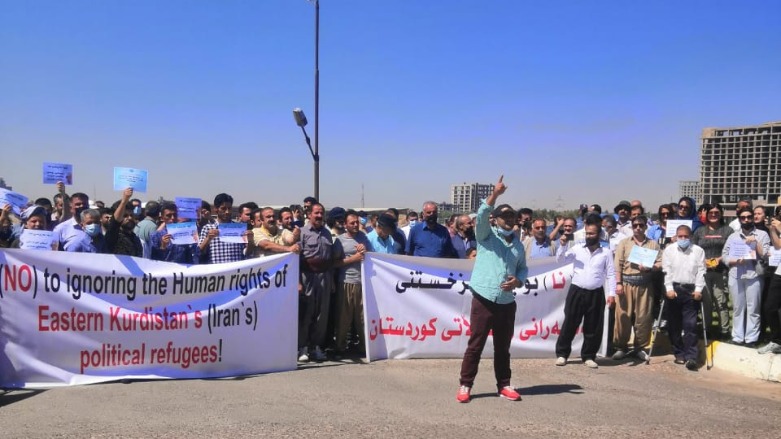UN voices sorrow over Iranian asylum-seeker's suicide attempt outside Erbil headquarters

ERBIL (Kurdistan 24) – The United Nations High Commissioner for Refugees (UNHCR) in Iraq expressed sorrow on Thursday after a frustrated Iranian asylum-seeker set himself on fire in front of the UN headquarters in the Kurdistan Region's capital of Erbil two days earlier.
"UNHCR is saddened by the tragic incident that occurred on Tuesday (18 May 2021), when an Iranian asylum-seeker set himself on fire outside the entrance of the UN compound in Erbil in the Kurdistan Region of Iraq (KRI)," the refugee agency said in a statement.
Mohammad Mahmoudi, a Kurd from the Boukan region of Iran, poured gasoline on himself and set himself alight in front of the building on Tuesday. Mahmoudi, 27, suffered burns on more than 90 percent of his body and is now being treated at a public hospital in the city, according to medics who spoke to Kurdistan 24.
Before the incident, he said in remarks captured by some of the region’s news media that he had been living in the Kurdistan Region for four years without yet being granted asylum status.
Other ethnic Kurds from Iran protested at the site earlier on Thursday.
Read More: Iranian Kurds protest at UN office following asylum-seeker’s self-immolation
The UNHCR wrote that "medical teams of the United Nations carried out first aid and transferred the asylum-seeker to the emergency hospital in Erbil, where he is now receiving medical treatment."
The statement explained that the agency "provides the vulnerable refugees and asylum seekers in Iraq and the Kurdistan Region, regardless of nationality, with protection services, legal aid, and cash assistance."
"We also support Government institutions in providing community access to public services such as health, education, water, and electricity."
One of the protesters told Kurdistan 24 on Thursday, “I have come to the conclusion that even UNHCR has become the man of Islamic Republic,” while another expressing his disappointment at the agency’s perceived lack of willingness to find a solution to their cases.
Thousands of Kurds from Iran have left for the Kurdistan Region, some motivated by political opposition to the government but also for economic reasons as years of sanctions have taken a toll on Tehran’s finances.
Editing by John J. Catherine
